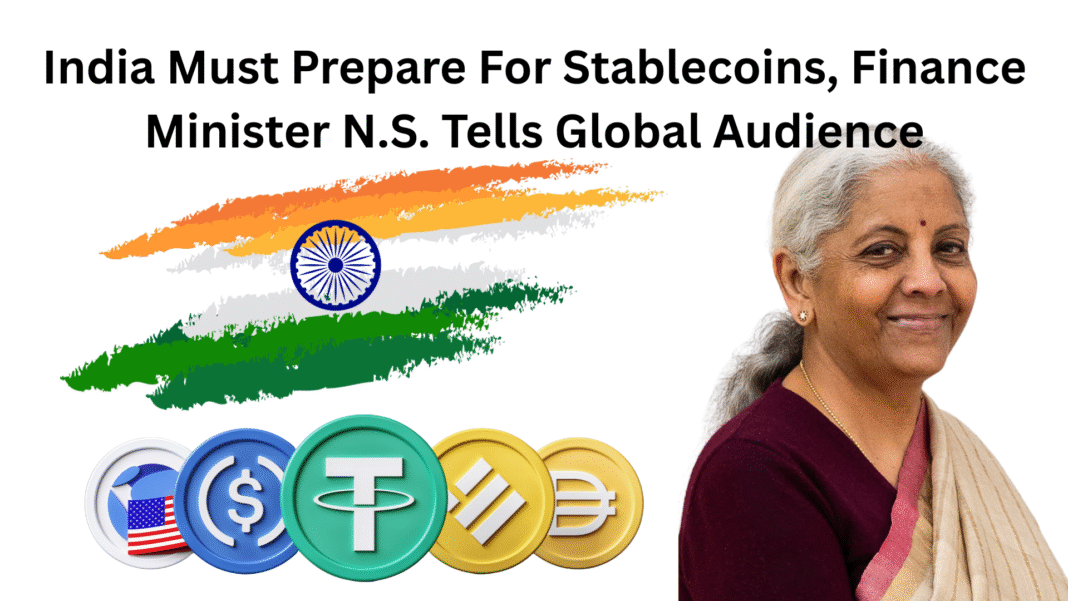India’s Union Finance Minister Nirmala Sitharaman said at the Kautilya Economic Conclave that countries must ready themselves to deal with stablecoins and new types of money.
She said, “Innovations like stablecoins are transforming the landscape of money and capital inflows. These shifts may force nations to make binary choices, adapt to new monetary architecture and risk evolutions.”
Sitharaman said India should adapt with care, keep its economic strength, and make steady choices so it can protect its interests while staying part of the global system.
Stablecoins and global money
The finance minister said stablecoins and other digital instruments are changing how money moves across borders. She told the audience that no country can hide from these shifts.
The message was clear: engagement is not optional, and the governments must plan for new forms of money, she said, and build the systems and rules that protect people and the economy.
India’s current stance
India’s approach remains cautious, and the finance ministry allows taxation of crypto activity but has not given private coins legal status.
The Reserve Bank of India continues to push for an outright ban on private virtual assets.
At the same time, the RBI is running a pilot for India’s own central bank digital currency. That project has full legal backing, which sets it apart from private tokens.
Why is the government cautious?
Officials worry that formally recognising private crypto could lend it legitimacy and allow the market to grow into a systemic risk. They also fear private tokens could, in time, put pressure on India’s payments system, including UPI.
These worries help explain why lawmakers and regulators are wary of giving full legal acceptance to cryptocurrencies today.
Calls for vigilance and resilience
Sitharaman said strategic independence depends on constant performance and timely action. She urged policymakers to stay vigilant, and she also highlighted India’s ability to absorb shocks.
Global conflicts and new alliances, she said, are testing old ties and making fresh ones. India must adapt without losing its financial stability.
Crypto platforms return to India and industry views
The minister’s comments come as major exchanges show renewed interest in India. Coinbase has relaunched operations in the country, and other platforms such as Binance and KuCoin are moving back as well.
Their return reflects the large customer base and heavy crypto interest in India. It also raises questions about how these firms will fit within India’s cautious rules.
Binance co-founder Changpeng Zhao weighed in on India’s economic stress. He urged greater competitiveness and more innovation as the best ways to strengthen the economy.
Legal and policy signals
A government document prepared this month, as reported by Reuters, shows the finance ministry and RBI leaning against passing a law that fully legalises cryptocurrencies.
The concern is that legal recognition could push crypto toward becoming a systemic feature of India’s financial system.
Regulators want to avoid a scenario where private tokens weaken existing payment rails or add new risks.
Balancing innovation with protection
The situation in New Delhi is one of balance, and policymakers want to keep India open to new technology and new markets. At the same time, they want strong rules to prevent misuse, such as money laundering or terror financing.
Stablecoins could change capital flows and affect monetary sovereignty. That makes clear rules and careful oversight essential.
India will likely move cautiously and in stages, and the CBDC pilot will continue. Exchanges will keep testing the market for user demand and compliance. Lawmakers and regulators will study the risks before making sweeping legal changes.


